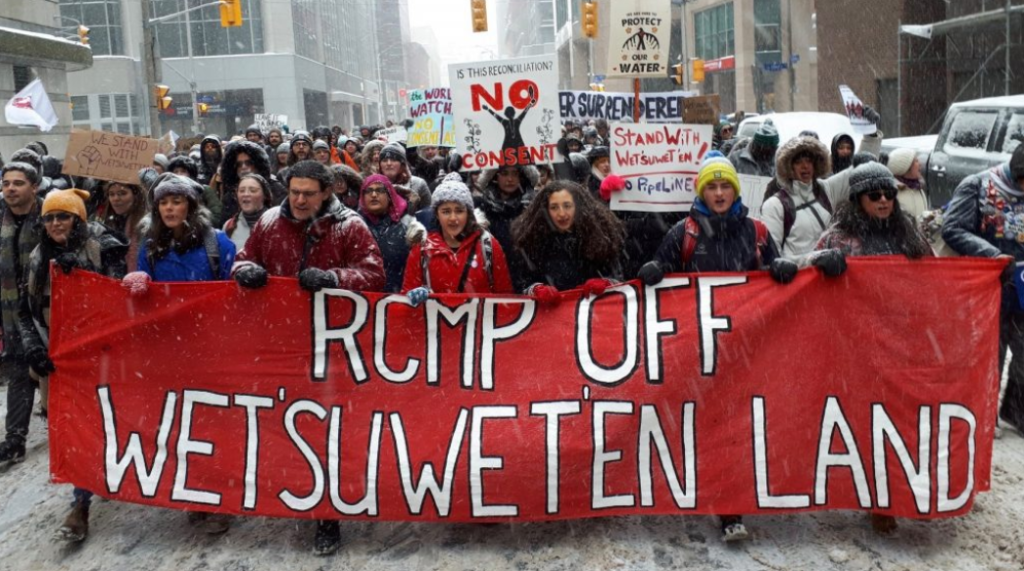This year was especially difficult for indigenous movements and land defenders around the world. Not only did they have to contend with the challenges of the COVID-19 pandemic, but it was also a particularly violent year with more violence and repression. Globally, transnational corporations, large landowners and governments took advantage of the lockdown and the subsequent decline in mobilization to advance their plans of land-grabbing, evictions and exploitation of natural resources. However, despite the challenges, movements continued their struggles with conviction and also secured some very inspiring victories.
In Colombia, killings of social leaders and indigenous activists has continued unabated and on an unprecedented scale. According to the Institute of Development and Peace Studies (INDEPAZ), as of December 29, 2020, over 307 activists, including land defenders, human rights advocates and environmentalists have been killed in assassinations across Colombia. In the report by INDEPAZ documenting these assassinations, they show that the majority of the assassinations occurred in the context of land disputes. They highlighted that many of these land disputes are related to historic conflicts between peasant and ethnic communities against paramilitary groups, drug traffickers, and the state over the imposition of projects for natural resource extraction, illicit crops, and strategic territorial control. In Colombia, those who are on the front lines in defense of the land are tortured, disappeared and assassinated, but despite this stark reality people continue to resist.
In the Philippines, a similar picture emerges. Murders of social activists and targeted attacks on journalists covering the struggles on the ground have continued, but the people are definitely pushing back. Recently a major victory was won by people’s movements who have been resisting the violence of the government of Rodrigo Duterte when the International Criminal Court released a report on possible “war crimes” committed by this government.
In Brazil, the Landless Rural Workers’ Movement (MST) has waged an unrelenting battle for land rights and against evictions during the pandemic. The one struggle that should be particularly noted was the attempt to resist the eviction of the MST’s Quilombo Campo Grande camp where hundreds of families have lived, worked, cultivated the land and been educated for the last two decades. Beginning on August 12, where hundreds of residents of Quilombo Campo Grande tried to resist eviction, but after more than 60 hours of violent eviction drive, which involved setting the land on fire, the authorities eventually managed to clear part of the land. MST highlighted evicting families during a pandemic was immoral and unjust. Despite the setback, the MST has vowed to build back what was lost. A similar attack was launched on the MST’s settlement in Bahia, where the National Guard was illegally called.
Similarly in South Africa, the shack-dwellers’ movement, Abahlali baseMjondolo (AbM) has been fighting evictions during the pandemic in the metropolitan area of Durban. The African National Congress-led city government has been targeting the AbM camps and shack-dwellers across the city under the cover of the pandemic. International solidarity poured in for the movement, as they pitched a fierce struggle for their right to land. Incidentally, the movement also commemorated 15 years of their struggle in October 2020.
Australia also had a very rocky year with indigenous movements and environment. The year began with bushfires that have been raging across the vast country, inflicting unspeakable devastation to the land, environment, and the species. This and the destruction of a 45,000 years old indigenous rock shelter by mining conglomerate Rio Tinto has only put further scrutiny on mining corporations and their nexus with the conservative government. In Western Australia, an aboriginal group has raised a federal legal challenge on land loss by mining, the verdict of which could become a landmark in aboriginal land rights.
In North America, protests against oil pipelines continue to be waged by indigenous activists and environmentalists. In Canada, the year began with a nationwide mobilization for the Wet’suwet’en people’s battle against the construction of the Coastal GasLink pipeline. Their struggle continues despite a disappointing verdict passed by the court, along with orchestrated repression on their land. Just to the south, in the United States, a significant victory was secured by indigenous groups after a federal court cancelled the permit for the Dakota Access pipeline. This year also witnessed the emergence of the Land Back Movement in both the US and Canada, bringing to light the sordid history behind the founding of Mount Rushmore and other stolen lands from Native Americans. The repression of the protests at Rushmore held on US Independence Day only led to a spark in nationwide demands from indigenous peoples for their “land back”.
One of the most celebrated victories of indigenous movements took place this year in Bolivia. Bolivian indigenous movements joined trade unions and social movements in sustained mass struggle to dethrone a coup government that inaugurated itself with massacres last year. Despite the overwhelming repression and attacks unleashed by the coup government of Jeanine Anez, the movements in Bolivia were eventually successful. Not only did they force the government to hold elections, but also ensured the return of democracy in an unprecedented undoing of an imperialist coup.
As neoliberalism intensifies under the shadow of the pandemic, the land, environment and livelihoods of front-line communities are the most affected. While repressive governments systematically violate human rights and collective, historic and ancestral rights to land, new struggles are being waged, alliances are being forged, and the resistance continues.
(Courtesy: Peoples Dispatch, an international media organization with the mission of highlighting voices from people’s movements and organizations across the globe.)




